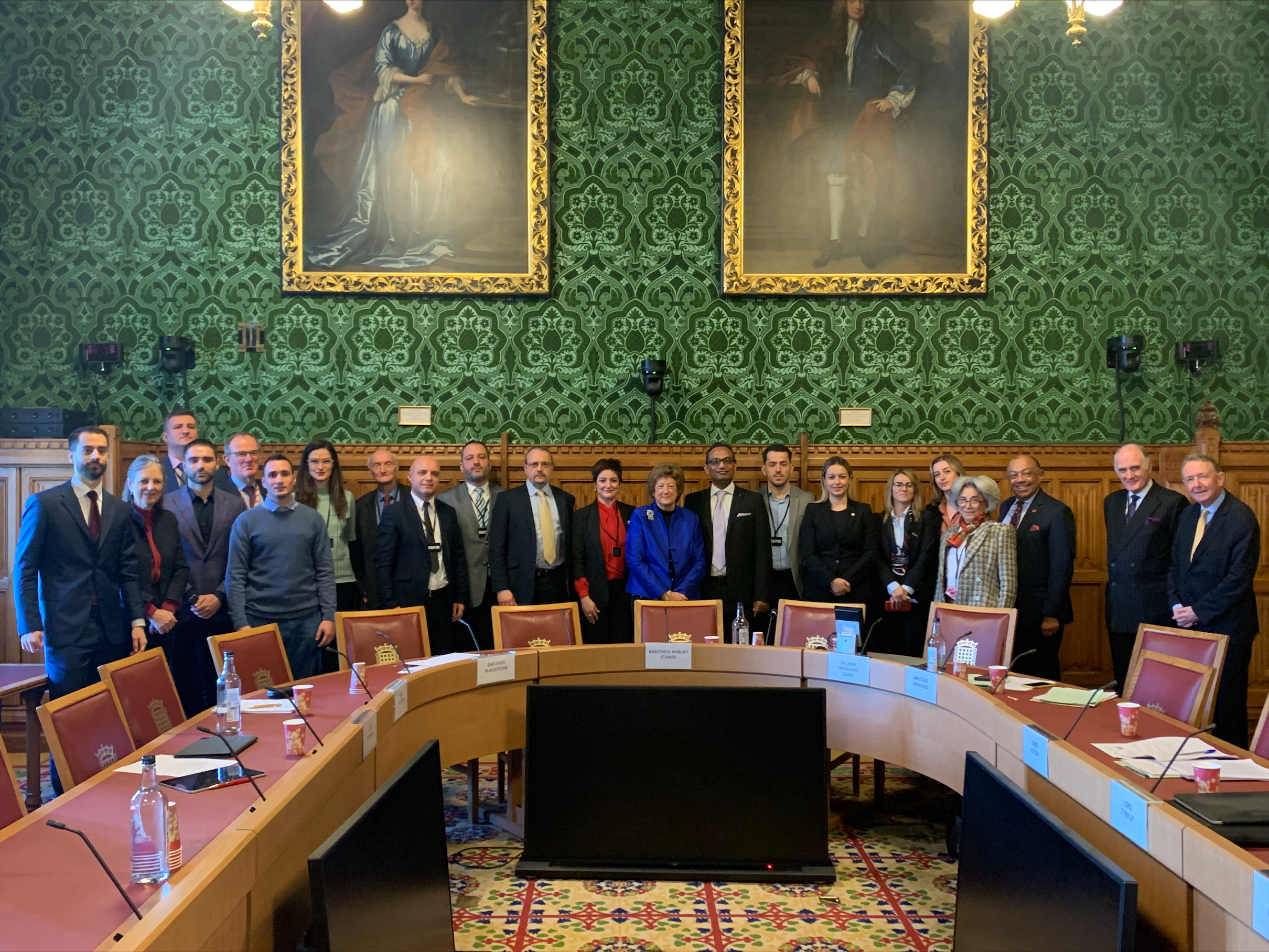Extending global networks for responsible cyberpower
11/01/2023

Smaller nations are facing more concerted cyber-attacks, from hostile states, criminal gangs and terrorists. And like other countries, whatever their size, their governments, institutions and businesses lack capacity when it comes to dealing with the ever-changing complexity of malicious activities online.
The interconnected nature of our digital IT-based world is both its weakness and its strength. Digital connectivity means more open systems and opportunities for anonymised attacks. At the same time, it also means real benefits from working together to build a common basis of mutual security.
As an internationally recognised centre of expertise for cybersecurity, Cranfield Defence and Security has been playing its part in supporting the UK’s role in global cyberspace, spreading responsibility and good practice. We’ve been hosting 12 mid-career professionals from the Western Balkans who have the potential to be cybersecurity leaders of the future, driving forward the development of cyber defences.
The Chevening Western Balkans Cyber Security Fellowship is a programme funded by the Foreign, Commonwealth and Development Office (FCDO), aimed at building relationships with partner countries, aligned with the work of the National Cyber Security Centre (NCSC) and the UK’s strategy to be a democratic and responsible cyber power by 2030. The cohort includes five Fellows from Kosovo, two from Serbia, two from Albania, two from Montenegro, and one from North Macedonia.
Jovan Radakovic works in the corporate intelligence sector in Serbia. “More organisations are making use of online intelligence, meaning we’re seeing new vulnerabilities,” he said. “My aim is to take ideas and principles from the programme and turn them into working practices in Serbia. I want to be mapping out the specific threats and how they operate so that we’ll be in a position to understand the most effective approach to defences. The Fellowship has been especially important in opening up very strong access to networks of professionals in the Balkans facing similar challenges.”
Over the course of the 10 week programme, the group explored forms of cybersecurity best practice, hearing from organisations like Qinetiq and Thales on building defence systems. They learnt more about the UK’s heritage in the field of intelligence by visiting Bletchley Park, the Allies’ HQ for code-breaking during the Second World War. The Fellows were also invited to the House of Lords by the Rt Hon. Baroness Anelay of St Johns, chair of the Select Committee on International Relations and Defence, to be part of a private committee meeting. The meeting included the sharing of insights relating to the UK’s current inquiry into the new age of defence following Russia’s invasion of Ukraine and increasing risks from ‘sub-threshold’ warfare, such as cyberattacks.
Liljana Pecova-Ilieska, from North Macedonia, has an extensive professional background working with the police, government institutions and the civil society sector. “The real value of the programme has been in taking a multi-stakeholder approach, bringing in the academia, defence, private public partnerships, corporate sector. Since cybersecurity is not just about IT, but the human aspects: the social sciences, governance and management, strategy-making. It is very much bringing all in. Cybersecurity is a discourse – we simply need to talk more about it.
“Being at Cranfield has meant having access to case studies from industry, the chance to be part of a wider networks of experts that we wouldn’t otherwise meet or talked to, or visit places we wouldn’t be able to go to. We need that larger perspective from across world to ensure we can integrate with good practice.”
Fellows undertook research projects relevant to specific needs in their nations, including disinformation and its impact on the electoral process; the growth in digitised billboards across sectors, including transport and education, and the need for defences against propaganda and disinformation; cryptocurrencies and their use in crime; and the potential for recruiting experts from businesses to form voluntary cyber defence units. Projects were presented to the FCDO at sessions attended by ambassadors from the Western Balkans countries.
The Fellowship has built another set of foundations for the UK on cybersecurity, for mutual support and co-operation over the long-term.
“The chance to meet select committee members at the House of Lords has been a testament to the standing of the fellowship and also Cranfield itself,” said Jovan Radakovic.
Liljana Pecova-Ilieska added: “The WB region has to redefine itself in terms of a strong and shared cybersecurity resilience. It’s this kind of initiative and opportunity for sharing thinking that makes progress much easier; there’s now an embedding of UK values and approaches to responsible cyber-power that can be a model in our countries to build security.”
Applications are now open for The Chevening Western Balkans Cyber Security Fellowship and close on Tuesday 7 March 2023. The Fellowship is aimed at mid-career professionals with demonstrable leadership potential in the field of cyber security or cyber policy in the Western Balkans.
Submit your application here.
Research essays from this year’s Chevening Western Balkans Cyber Security Fellows
Exploiting recruitment agencies to steal your personal data, by Jovan Radakovic
Know your enemy_Preventing data leakage from insider threats, by Klorenta Pashaj
Gamification_A pain killer for cybersecurity hiring, by Liljana Pecova-Ilieska
Categories & Tags:
Leave a comment on this post:
You might also like…
From classroom to cockpit: What’s next after Cranfield
The Air Transport Management MSc isn’t just about learning theory — it’s about preparing for a career in the aviation industry. Adit shares his dream job, insights from classmates, and advice for prospective students. ...
Setting up a shared group folder in a reference manager
Many of our students are now busy working on their group projects. One easy way to share references amongst a group is to set up group folders in a reference manager like Mendeley or Zotero. ...
Company codes – CUSIP, SEDOL, ISIN…. What do they mean and how can you use them in our Library resources?
As you use our many finance resources, you will probably notice unique company identifiers which may be codes or symbols. It is worth spending some time getting to know what these are and which resources ...
Supporting careers in defence through specialist education
As a materials engineer by background, I have always been drawn to fields where technical expertise directly shapes real‑world outcomes. Few sectors exemplify this better than defence. Engineering careers in defence sit at the ...
What being a woman in STEM means to me
STEM is both a way of thinking and a practical toolkit. It sharpens reasoning and equips us to turn ideas into solutions with measurable impact. For me, STEM has never been only about acquiring ...
A woman’s experience in environmental science within defence
When I stepped into the gates of the Defence Academy it was the 30th September 2019. I did not know at the time that this would be the beginning of a long journey as ...







